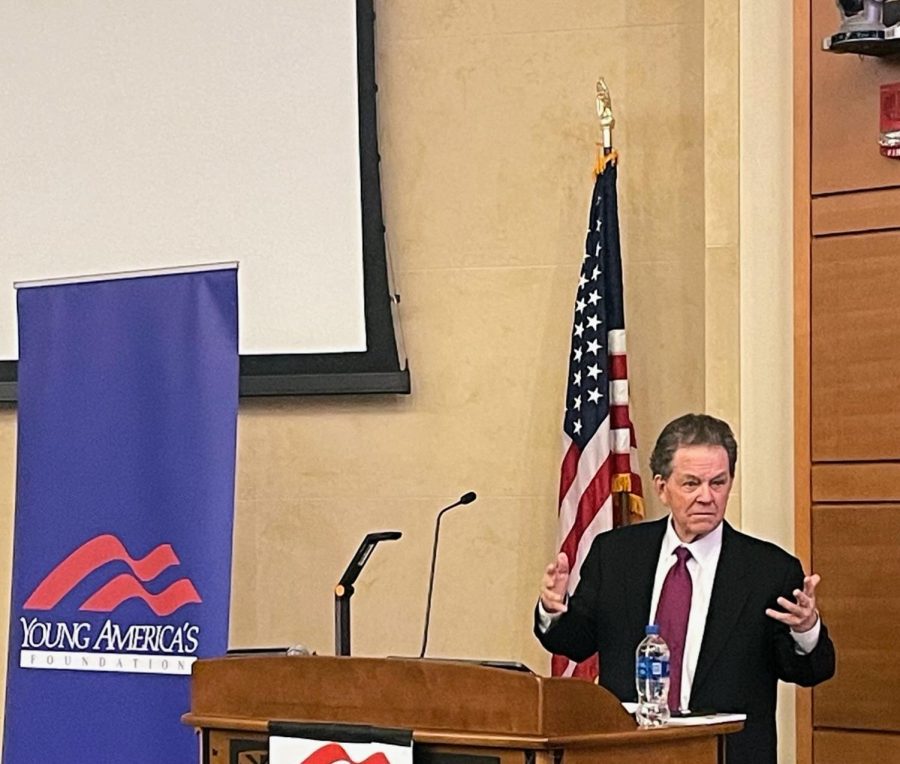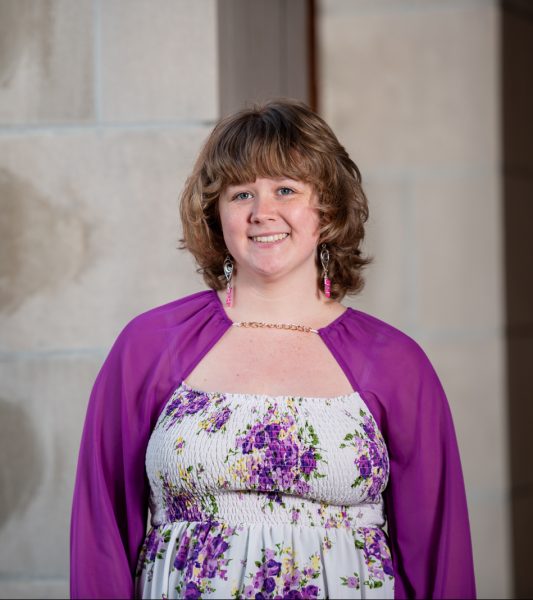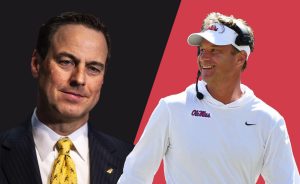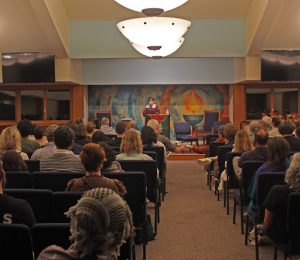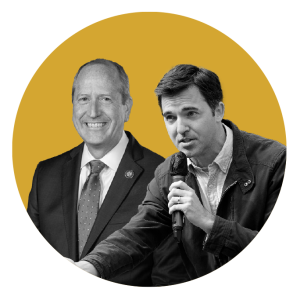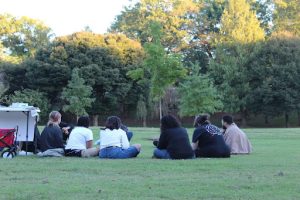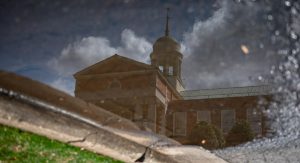Renowned economist talks taxes on campus
WFU’s Young Americans for Freedom chapter invites Dr. Arthur Laffer to campus
February 12, 2023
Presidential Medal of Freedom recipient and renowned economist Dr. Arthur Laffer was welcomed to the Wake Forest campus to deliver a lecture titled “Taxing the Rich Has Consequences,” which he argued by presenting an economic theory he popularized.
The Wake Forest Chapter of Young Americans for Freedom (YAF) — a subsidiary of the Young America’s Foundation — hosted the Feb. 8 event. The talk was open to members of the public and explained an economic theory made popular by Laffer — though he rejects the notion that he created it.
The Laffer Curve posits that there is some tax rate between zero and 100% that would maximize tax revenue collected by the government. Laffer argued in his lecture that the current tax rate is far too high to achieve this.
To make his point, Laffer displayed several line graphs following taxation and revenue from 1913 — when the Constitution was amended to allow income tax — to the present. The graphs demonstrated how times of economic growth have occurred in tandem with periods of a lower tax percentage maximum. Several audience members took photographs of the chart and whispered amongst themselves.
“I’m gonna go through [this] because it’s really, really important … it’s a matter of facts people; it’s not how you feel,” Laffer said, in reference to the graphics.
He continued: “These are the lessons for today … This is data talking, not an economist. It’s not left-wing or right-wing. It’s not liberal or conservative. It’s not Republican or Democrat. These are the facts, people … it’s not ideology.”
Grace Castaneda, a Wake Forest School of Business graduate student who created the student organization, Society of Economists in 2021, enjoyed the talk and appreciated that Laffer was willing to share his ideas with university students.
“It’s really refreshing to have [Laffer], who created such a huge economic theory, pass on that knowledge and get out there to students,” Castaneda said.
Dr. James “Jim” Willis, a professor at the Wake Forest School of Business, attested to the connections between Laffer’s discussion and his course material. Willis, who specializes in corporate and income tax, has used the Laffer Curve theory when teaching his students.
“What he was talking about is rather relevant to what we talk about in class,” Willis said. “To hear from someone who has a background like Laffer is pretty impressive.”
For some members of the audience, however, Laffer’s claim of nonpartisanship did not resonate. Sophomore Anna Dumont, a politics and international affairs student, felt that Laffer’s ideas and discussion were more conservative and did not address more liberal ideas.
“There’s that other side of the coin. I don’t think he talked about it because he knew his audience — all Republicans,” Dumont said, referring to the fact that Young Americans for Freedom is a right-wing group. “I like hearing different points of view … But also I just can’t deny that it was kind of just reaffirming what people already wanted to hear.”
Dumont did say, however, that Laffer’s expertise in the field was still something she could appreciate — despite not completely agreeing with his ideas.
“[The talk] was really cool,” she said. “I mean, he’s an important guy … not someone who I might necessarily admire, but I have to respect him nonetheless because he has done a lot.”
While the talk was geared toward people in the business field, Christina Elson, executive director of the Wake Forest Center for the Study of Capitalism, said that the event was for everyone.
“We try to make the content of the event … as accessible to everyone as possible,” Elson said.
When asked about what young people have the power to do in the economy, Laffer encouraged them to “take responsibility” and ensure that they “are always rewarding the things [they] want and not the things [they] don’t.”
Spyros Skoruas, a Wake Forest graduate and director of a corporate development team in Charlotte, N.C., agreed that it is important to pass these lessons on to younger generations.
“I wish more people would come and listen to it — especially college-age students — and realize the true costs of taxes and life and vote accordingly,” Skoruas said.
Junior and YAF President Pierce Sandlin thanked Laffer and the organizations that partnered with YAF to put on the event. Sandlin called it the “largest and most substantial event” YAF has hosted to date and expressed gratitude to the faculty and staff at Wake Forest for promoting diverse ideas on campus.
After the recent event’s success, YAF Events Coordinator Will Ezzell said the organization will discuss the potential of future big speaker events. If you are interested in getting involved with YAF, you can join their GroupMe or find them on Instagram at @yafwfu.


